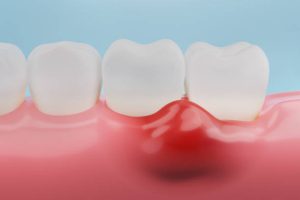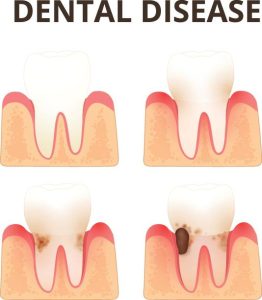Table of Contents
ToggleIntroduction

If you’re like me, then you probably have some concerns about your dental health. Maybe you don’t know how to take care of your teeth or what’s going on with them. Or maybe you are facing an oral disease that needs treatment. Whatever the case may be, it seems like there’s always something new to learn about our mouths and teeth! Eating healthy foods with vitamins and minerals is important. Sugar is not good for you. Chewing sugar-free gum can help prevent bad breath. There are ways to prevent cavities. You can also prevent tooth decay. To keep your teeth healthy, make sure your dentist is doing their best.
A healthy smile is a happy smile.

A healthy smile is a happy smile. It can make you feel better about yourself, improve your self-confidence and relationships, and boost your career opportunities.
A healthy mouth is an important part of overall health because it protects the teeth from harmful bacteria that can cause tooth decay or gum disease. It also helps keep the mouth clean so that food doesn’t get trapped between teeth or under gums where bacteria can multiply even further—causing cavities or gingivitis (gum inflammation).
Brushing your teeth helps to prevent tooth loss.

Brushing your teeth is a great way to protect your teeth and prevent tooth loss. Tooth loss can cause serious health problems, including:
- An increased risk of heart disease and stroke
- A higher risk of bone disease and loss from the jawbone (osteoporosis)
Tooth decay occurs when bacteria in plaque build up on the surface of your teeth over time. This creates cavities, which are holes in between the layers of enamel that cover each tooth. These cavities make it easier for food particles to get into the bloodstream because they can become inflamed or infected with harmful bacteria like Streptococcus mutants (the main source of dental caries).
Proper oral hygiene can help you live longer by preventing other conditions
Proper oral hygiene can help you live longer by preventing other conditions.
- Dental health affects your overall health and quality of life. If you have gum disease, it can make it harder to eat or speak properly, as well as cause pain in your jaw bones and teeth. This is especially true for older people who may not be able to floss regularly because their dexterity isn’t what it used to be. The same goes for children who aren’t taught proper care at home—they may not brush or rinse away bacteria from food stuck between their teeth before eating them!
- Oral hygiene also plays a role in our ability to communicate with others: if we don’t want everyone else around us whispering about what we ate last night (or worse yet: thinking that they know), then regular brushing will help keep things clean so there aren’t any nasty smells lingering around town afterward!
Dental hygiene for people with braces.

Maintaining proper dental hygiene is especially important for individuals with braces or other dental appliances. These appliances can make it more difficult to reach certain areas of the mouth, and food particles and plaque can easily become trapped between the appliance and the teeth. This can increase the risk of tooth decay and gum disease. To ensure good dental hygiene with braces or other dental appliances, it is important to brush and floss regularly, using tools such as interdental brushes or water flossers to reach hard-to-clean areas.
For high-quality and affordable braces, check out Smileie Inc. Their team of experienced professionals will ensure that you receive the best treatment possible. When wearing braces, maintaining proper dental hygiene is especially important as these appliances can make it harder to clean certain areas of the mouth and trap food particles and plaque between the appliance and teeth.
Flossing is just as important as brushing.

Flossing is an essential part of maintaining good oral hygiene. Not only does it remove food particles and plaque that can lead to the development of cavities and gum disease, it can also help freshen your breath by removing bacteria that can cause bad odors. If you have difficulty reaching certain areas of your mouth while flossing, you may find it helpful to use a floss pick or a water flosser. It is recommended to floss at least once a day, preferably before bed to remove any food particles that may have been missed during the day. By incorporating flossing into your daily routine, you can help keep your teeth and gums healthy.
Over 40 percent of Americans have moderate to severe gum disease.

Gum disease is an infection of the gums and bone that surrounds your teeth. It’s caused by plaque buildup, a sticky film made up of bacteria, food particles, and saliva. Plaque can lead to gingivitis and periodontal disease, which are conditions that affect how well you take care of your teeth—and could even cause you problems if left untreated
It is a serious condition that can lead to tooth loss, other health problems, and even death. It’s also a preventable disease that you can treat easily at home. If left untreated, gum disease will continue to worsen until it becomes advanced and irreversible.
Gum disease is caused by plaque on your teeth that hardens over time into tartar (calculus). Plaque builds up under your gums where it causes inflammation by irritating the mucosa of tissue in your mouth—the same tissues that help protect our teeth from infection! The result is an irritated area between the gum line and where teeth meet each other; this area eventually turns into red patches called gingivitis or periodontitis if left untreated long enough—and either way, no one wants this unsightly appearance on their smile!
How can I prevent gum disease?
The best way to avoid gum disease is by brushing and flossing regularly. Regular brushing can help remove plaque from your teeth, which is one of the causes of gingivitis. If you want to prevent gum disease, it’s important to get regular checkups. Talk with your dentist about your mouth and gums, so they can identify problems while they’re still small. If left untreated, these diseases have the potential to cause serious damage over time—which is why I recommend scheduling regular cleanings every six months or so.

Take action today!
To maintain a healthy smile and overall health, good dental hygiene is essential.
Eat nutritious foods and chew sugar-free gum to protect teeth and gums. For those with braces or dental appliances, brush, and floss often and visit the dentist. Good dental hygiene prevents tooth decay and gum disease, leading to a lifetime of healthy smiles.








